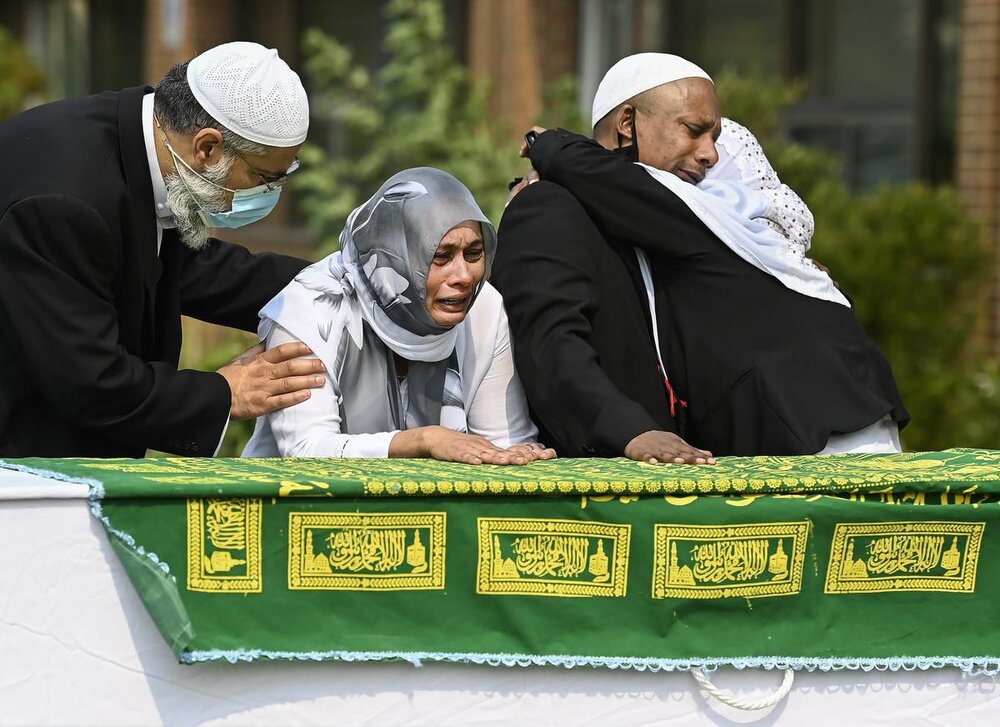Hawzah News Agency - Everyone’s focused on fighting COVID-19, and for good reason. The “second wave” is upon us and all signs are that things could get a lot worse. It’s hard to think about anything else.
But pause for a moment and contemplate this: less than two weeks ago, on an ordinary street in suburban Toronto, a man had his throat slit in front of a place of worship.
It happened outside a mosque on Rexdale Blvd. in Etobicoke. Mohamed-Aslim Zafis, a 58-year-old volunteer caretaker who was monitoring entry to the building, was stabbed to death as people were gathering for evening prayers.
At the time, the mosque asked people not to speculate about what happened. The incident was effectively downplayed.
But a lot more information has emerged about this brutal killing over the past few days, and it’s deeply troubling. Toronto police quickly arrested a suspect, and there’s growing evidence that he may have been inspired by some kind of neo-Nazi ideology that instructs its followers to commit murder.
The man arrested by police, 34-year-old Guilherme (William) Von Neutegem, has been charged with first-degree murder. And given what has already become public, there’s pressure to go further and charge him with a hate crime or even terrorism. In other words, to treat the killing of Zafis not as a random one-off incident but as part of a growing pattern of violence linked to, or inspired by, far-right white supremacist groups.
Certainly, Zafis’s friends and fellow congregants at the International Muslim Organization mosque aren’t in much doubt about the killer’s motivation. “We had to look upon a sight that no one should ever have to look upon,” Mustafa Farooq told the Globe and Mail. “Let me be clear: A man came to this mosque. He murdered our brother Mohamed-Aslim Zafis by slitting his throat.”
Sadly, churches, synagogues and mosques have been targeted by extremists in both Canada and the United States. As a result, the federal government has increased funding for a program that helps organizations at risk of hate crimes beef up their security systems.
To their credit, Toronto police did make an arrest quickly in this case, only six days after the killing. And they say they haven’t ruled out treating it as a crime motivated by hate if their investigation takes them in that direction. They’re also looking at possible links to the fatal stabbing six days earlier of Rampreet (Peter) Singh, a man with a similar ethnic background to Zafis.
But there’s a bigger picture here, and it’s an ugly one. The nature of hate-inspired crime is clearly changing. And governments and police need to adapt quickly to stamp it out.
That’s well and good, but surely it’s not the real solution. If crimes motivated by racial or religious hatred are on the rise — and there’s plenty of evidence that they are — then governments and police forces must become a lot better at stopping the attacks before they happen.
It isn’t clear that they’re well-prepared at the moment. The Canadian Anti-Hate Network, an organization that monitors hate groups, says too many police forces simply aren’t aware of how people can be radicalized and inspired to commit hate crimes through the internet.
It was the Anti-Hate Network that publicly revealed social media accounts with the same name and location as Von Neutegem, the man accused of Zafis’s murder, that have links to the occult and to neo-Nazi ideology.
The network’s chair, Bernie Farber, says much of the new hate-inspired violence doesn’t come from organized groups. Rather, it’s committed by individuals who come across radical material online and translate that into action. That makes it a lot more diffuse and harder to fight. “We’re in a different world,” he says.


Your Comment